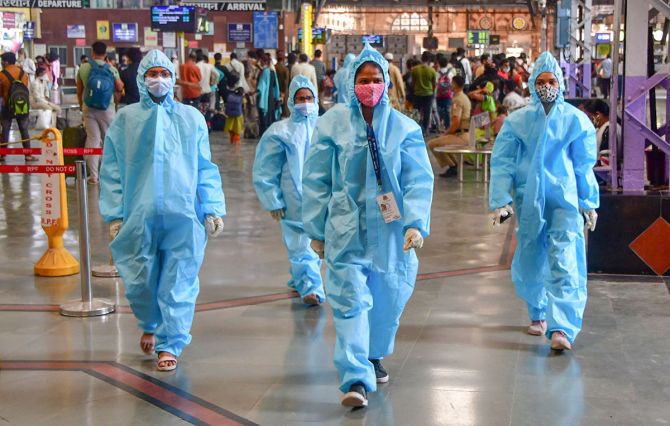India demanded a comprehensive and expert-led mechanism to expeditiously investigate the origin of coronavirus on Thursday, days after the World Health Organization (WHO) came out with a report on it that failed to meet expectations of the US, the UK, and several other countries, which voiced concerns over the findings.
It was mentioned in the report that WHO said, it was unlikely that the virus leaked from a lab in China’s Wuhan city and it is most likely that it arose in bats and then spread to humans, even as the US and many other countries raised the issue of Chinese authorities not providing full access to the WHO team investigating the origin of the virus
MEA Spokesperson Arindam Bagchi said, replying to media queries on the issue, “We share the need for a comprehensive and expert-led mechanism that would expeditiously investigate the origin of COVID-19 in cooperation with all stakeholders.”
To investigate how the virus originated in Wuhan city in December 2019 was demanded by a number of countries including the US and Australia.
We join other stakeholders in voicing their expectations that follow up to the WHO report or further studies, including on an understanding of the earliest human cases and clusters by the WHO on this critical issue, will receive the fullest cooperation of all concerned,” Mr. Bagchi said.
Referring to the WHO director general’s comments, the spokesperson said, “it is pertinent to note that the Director-General of the WHO has separately raised the issue of delays and difficulties in accessing raw data for the team conducting the study.”
“We fully support the Director General’s expectation that future collaborative studies will include more timely and comprehensive data sharing. In this connection, we also welcome his readiness to deploy additional missions,” he added.
However, the report represents an important first step in establishing the origins of the COVID-19 pandemic and that it stresses the need for further data and studies to reach robust conclusions, said the official.
He further said that India will continue to work with the WHO to improve global health security so that the present report and further studies will provide valuable inputs on developing protocols and building a knowledge base and expertise that facilitates genomic surveillance to track virus mutations and pro-actively respond to the next global pandemic.
The report has listed four pathways concerning the emergence of the disease but has stressed the need for next-phase studies across the region, the spokesperson said, and noted that it also stresses the need for further data and studies to reach robust conclusions.











